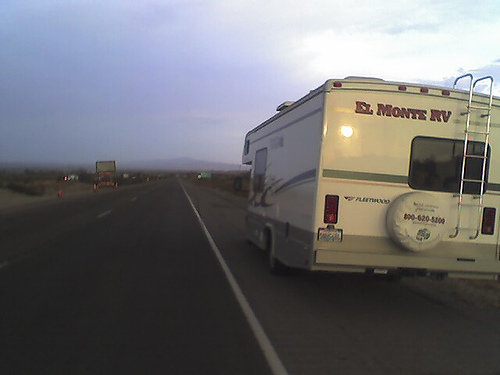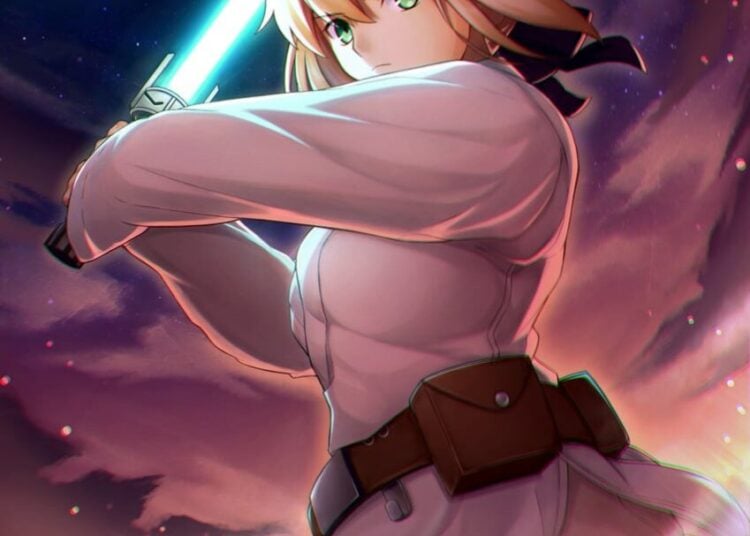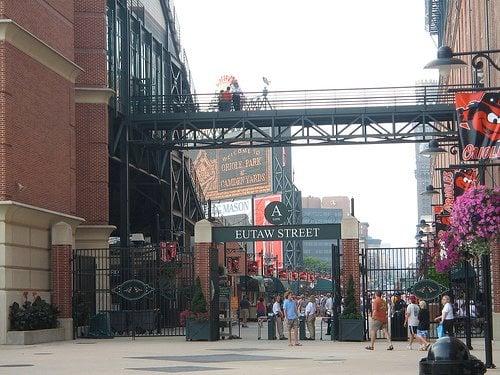Well, our RV trip to the Grand Canyon is finally over. We had great fun and the kids were amazed at the grandeur of the place, and I was happy to be able to show them a beautiful part of the USA. Now I’m headed “Back East” to Maryland with my son. We’re going to visit family and check out the places where I grew up as a boy (including the Kay Bee Toy Store where I bought my very first Star Wars figure, if it’s still there). We’ll also duck into Otakon (Aug 4-6) in Baltimore and check out the show — I’ll be on some panels related to bishoujo games on Saturday if you’re there and want to come by to say hi. For information on Otakon, see http://www.otakon.org.
My wife and I want to raise our kids to be bilingual, but it can be difficult sometimes. Since we live in Japan, my kids are naturally much stronger in Japanese than in English, which is why we bring them to the U.S. every summer so they can get a good dose of American culture. We learned early on that if my wife or I are around, my kids will find excuses to speak Japanese, and nothing we can do can force them to use English. The best way we’ve found to manage this is to put them in a “sink or swim” situation where they have to use English if they’re going to survive, and we’ve found summer camps to be a great way to make this happen. Every summer we choose several summer camps to send the kids to, which forces them use English and make friends with other kids. Today we dropped my daughter off at Raw Hide Ranch camp here in San Diego, a fun place where kids ride horses and play cowboy or cowgirl for a week (which I highly recommend, if you’re looking for a summer camp in the area for next year). For most people a summer camp is a great experience for their kids, and a peaceful week for parents, but for us it’s actually an incredibly beneficial tool for making our kids acculaturate to the U.S. and feel like “Americans.”
It’s funny, the things you discover when you start studying a language like Japanese. The first computer I ever owned was an Atari 400, those cool 8-bit machines from the early days of home computing. The word atari (pronounced with all syllables stress the same, e.g. ah-tah-ree, not ah-TAH-ree) is a Japanese word that literally means “to hit” and it’s used in the context of hitting a target or meeting a goal. It also means to get the right answer, and on game shows the host may shout “Atari!” when a contestant guesses correctly. (Alternately, he might should “ping pong!” which happens to simulate the sound of a “that is correct” bell to the Japanese ear.) When former childhood idol of mine Nolan Bushnell founded Atari in 1972, giving your company a Japanese name when it wasn’t Japanese must have been quite “edge.” Looking at the kanji for the word (see it on the J-List main page), you can even see that they drew a lot of the inspiration for the Atari logo from the design of the character.
JAST USA is sponsoring the first “H-Game Webcomic” entitled “HH” over at JAST USA, a hilarious web-based comic that will parody the themes found in bishoujo games, featuring characters from games by G-Collections, Peach Princess and more. Come on by and check it out! We plan to update the comic every Sunday.

This is the RV we went to Arizona in. Two adults and four kids, it was certainly cozy inside.















